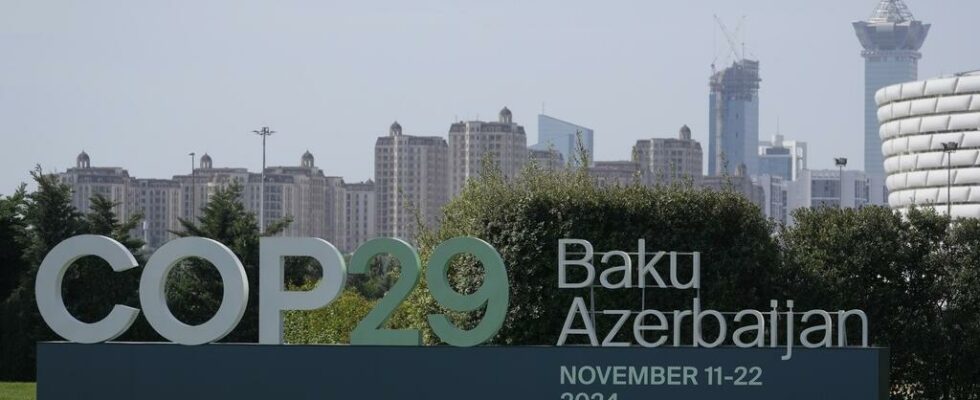The 29th UN conference on climate change begins this Monday, November 11 in Baku, Azerbaijan. Forty thousand participants, including around a hundred heads of state, are expected to better fight against global warming and its consequences. Scheduled until November 22, it must conclude with a new objective of financial aid to developing countries. A question that primarily concerns Africa.
3 mins
While global temperatures are once again breaking all records this year and climate disasters are coming one after the other, participants in the COP29 which starts this Monday, November 11 in Baku, in Azerbaijanwill have to decide on a new amount to help developing countries face the climate crisis until 2030. Africa alone is asking for 1,300 billion dollars each year until this horizon. “ We want this objective to no longer be just a political figure, a round number that sounds good to the ears, but for it to be an objective truly in line with the needs of developing countries, explains Tosi Mpanu Mpanu, the DRC negotiator at the COP. From this perspective, the group of African countries therefore estimates that between 1000 and 1300 billion dollars per year should be mobilized to help the continent so that it respects the objectives of the Paris Agreement, namely limiting the increase temperatures at 1.5°C by the end of the century”, this one continues.
This money should in particular enable poor countries to make their transition to renewable energies. It must also help them adapt to climate change to better resist it and serve to repair the damage caused by floods, droughts and cyclones which are increasing.
An example of adaptation to global warming in Africa: the revegetation of schoolyards in Maroua, Cameroon
For African countries, many of which are already drowning in debt, it is also important that these funds are mainly paid in the form of donations and not loans that will have to be repaid with interest. “NWe hope that, if mobilized, this funding will have better disbursement methods because often the money is there, but we cannot access it », confirmed Tosi Mpanu Mpanu.
North-South tensions
Although developing countries have high expectations from this COP29, they know that it is taking place in a complicated geopolitical context. “ There are armed conflicts which affect certain regions of the planet and which themselves sometimes undermine confidence in the multilateral system, since certain UN resolutions are not respected. We therefore deduce that if international law does not prevail in these areas, there is no reason for it to be authoritative in matters of climate action.further deciphers Tosi Mpanu Mpanu, who is also worried about the re-election of Donald Trump to the presidency of the United States. We know that he is one of the climate skeptics, that he was in favor of the United States leaving the Paris Agreement and even the United Nations Framework Convention on Climate Change, the text on which is based global climate governance. His return to power is therefore quite worrying since the commitments to which the United States has subscribed risk not being respected. This then risks undermining all trust and creating disengagement on the part of everyone.”
Not to mention that there are also a certain number of tensions in North-South relations. The main one arose from the promise – not kept on time – made in 2009 by developed countries to pay aid of 100 billion dollars per year to developing countries between 2020 and 2025. While the countries of the North are the ones responsible history of climate change, the countries of the South, which are today paying the high price, believe that it is their duty to repay their climate debt. For them, it is also a way of restoring confidence in multilateralism.
Also readThe means to adapt to climate change are largely insufficient, warns the UN
